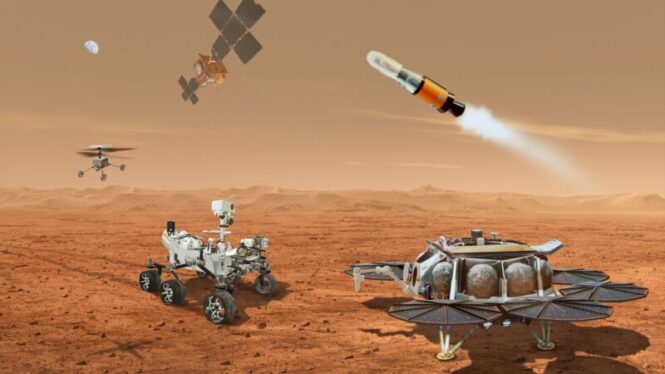
Enlarge / NASA’s existing plan for Mars Sample Return involves a large lander the size of a two-car garage, two helicopters, a two-stage bespoke rocket, a European-built Earth return vehicle, and the Perseverance rover already operating on the red planet. (credit: NASA/JPL-Caltech)
NASA’s $11 billion plan to robotically bring rock samples from Mars back to Earth is too expensive and will take too long, the agency’s administrator said Monday, so officials are tasking government and private sector engineers to come up with a better plan.
The agency’s decision on how to move forward with the Mars Sample Return (MSR) program follows an independent review last year that found ballooning costs and delays threatened the mission’s viability. The effort would likely cost NASA between $8 billion and $11 billion, and the launch would be delayed at least two years until 2030, with samples getting back to Earth a few years later, the review board concluded.
But that’s not the whole story. Like all federal agencies, NASA faces new spending restrictions imposed by the Fiscal Responsibility Act, a bipartisan budget deal struck last year between the White House and congressional Republicans. With these new budget headwinds, NASA officials determined the agency’s plan for Mars Sample Return would not get specimens from the red planet back to Earth until 2040.
Read 40 remaining paragraphs | Comments



